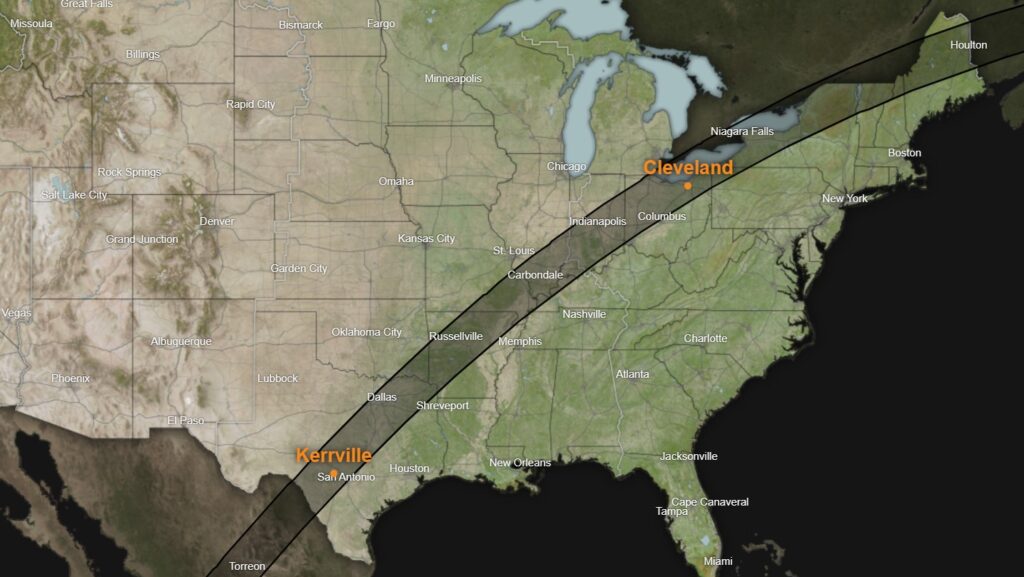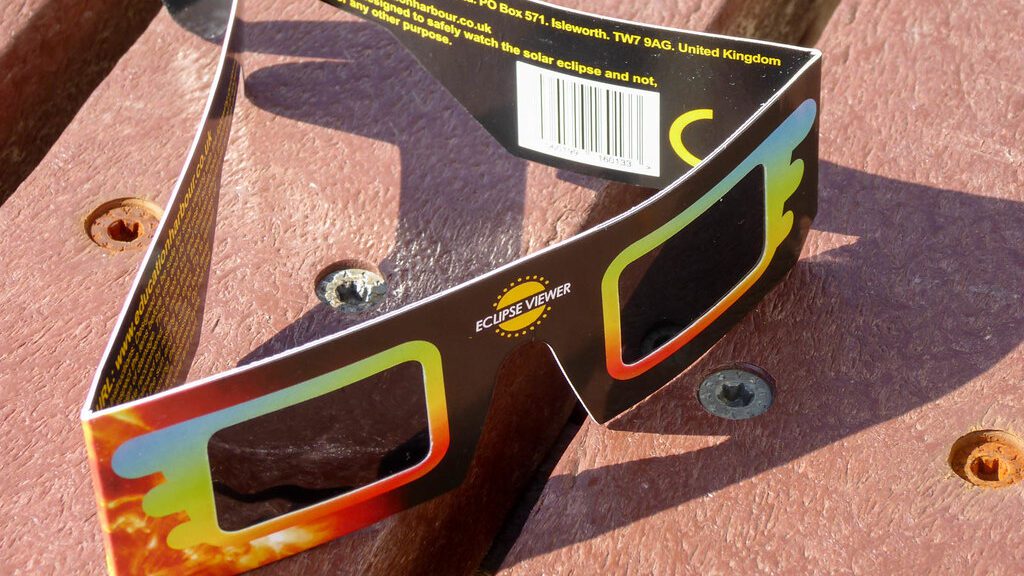ECLIPSEpreview
A solar eclipse will be visible from New England on April 8, 2024. Google Commons Photo
On Monday, April 8, New England will be treated to a rare total solar eclipse.
A solar eclipse occurs when the moon passes between Earth and the sun and blocks out the sun. On April 8, the moon will do so at a point that blocks out the sun for much of New England, in a diagonal line down to Mexico.
For a few minutes that day, the sky will darken, the air will cool down and the birds will go into a frenzy.
Ways and times to view the eclipse vary depending on location. Here are some tips for viewing the eclipse in Newton:
1. Not quite ‘total’
The path of totality—the geographical line in which the sun will be 100 percent blocked by the moon—is narrow and will miss Newton by 150 miles or so.
That means Newton will not see a total eclipse but rather a 93 percent eclipse. That sliver of seven percent of the sun will still be visible from much of New England including all of Massachusetts, as that path of totality skirts right around the Bay State.
But 93 percent is nothing to scoff at. The sun will turn into a thin crescent and the sky will darken as if the sun is setting mid-sky.

2. When and where to watch
The eclipse will be on April 8 between 3:00 and 3:30 p.m., so you’ll want to plan a viewing spot that allows you to see the late afternoon sun.
Newton isn’t known for its wide-open spaces, but there are some. And you’ll want to be somewhere the afternoon sun is visible. Fortunately, it’s spring and the days are longer so the sun will be higher in the 3:30 p.m. sky than it is in winter.
A few possible viewing locations include the Newtron Centre Green, Albemarle Field, Cold Spring Park, Edmands Park, Echo Bridge, Newton Highlands Playground and the Charles River Reservation near Lower Falls.
There are lots of other places to see the eclipse and you may be even able to watch from your window.
3. Protect the eyes
When and where you do watch the eclipse is not as important as how you watch it.
Looking directly at the sun can cause severe, permanent damage to the eyes. There’s a very brief moment during the actual total eclipse (the minute the moon completely blocks out 100 percent of the sun) when it’s safe to look, according to NASA, but Newton will not see that 100 percent totality so there won’t be any safe time to look at it.
Regular sunglasses won’t cut it. You’ll need special eclipse glasses that are thousands of times more protective against the sun’s light.
Solar eclipse viewing glasses are available for purchase online or in some stores. Walmart and Home Depot have been known to carry them.
If you’re feeling crafty, you can make an old-school eclipse viewer.

4. Check your camera settings
Millions of people will likely be photographing the eclipse, given how rare it is.
But it’s not as simple as pointing a camera at the sun. In fact, don’t do that. Pointing a camera lens at the sun can destroy your camera and burn your eyes.
Most people prefer to capture the corona (the sun’s atmosphere, known as its “crown”) in the eclipse, which is right when the moon completely blocks out the sun, and that doesn’t use solar filters. Since that won’t happen for Newton with a 93 percent eclipse, you may want to get a solar filter for your camera lens.
A regular telephoto lens magnifies the sun’s intensity, according to Space.com, and if you’re using a smartphone to photograph the eclipse, you’ll want to prepare your phone’s settings.
Turn off the phone’s flash, and don’t use the zoom feature. Using the flash can ruin photos and annoy nearby watchers, and zooming degrades the quality of the photo.
Wide-angle and portrait settings make for good eclipse photos, according to Space.com. A tripod can help with stability when photographing something millions of miles away.
5. Watch the kids and pets
If you have small kids, make sure they know not to look at the eclipse and not to remove their special eclipse glasses at all during the eclipse. It only takes a few seconds for eyes to burn.
As for pets, they probably won’t keep glasses on. They also probably won’t be staring at the sun. But it’s a good idea to keep an eye on them just in case they’re interested in what everyone’s staring at up there.
Pets may act strange during an eclipse, especially those with anxiety issues, since the eclipse will darken the sky and cool the air briefly. Their entire world changes for a moment, which can be jarring for them. It’s also why the birds go crazy during an eclipse.
If it’s easier, you may want to keep the pets indoors. If not, make sure their eyes stay away from the sky.